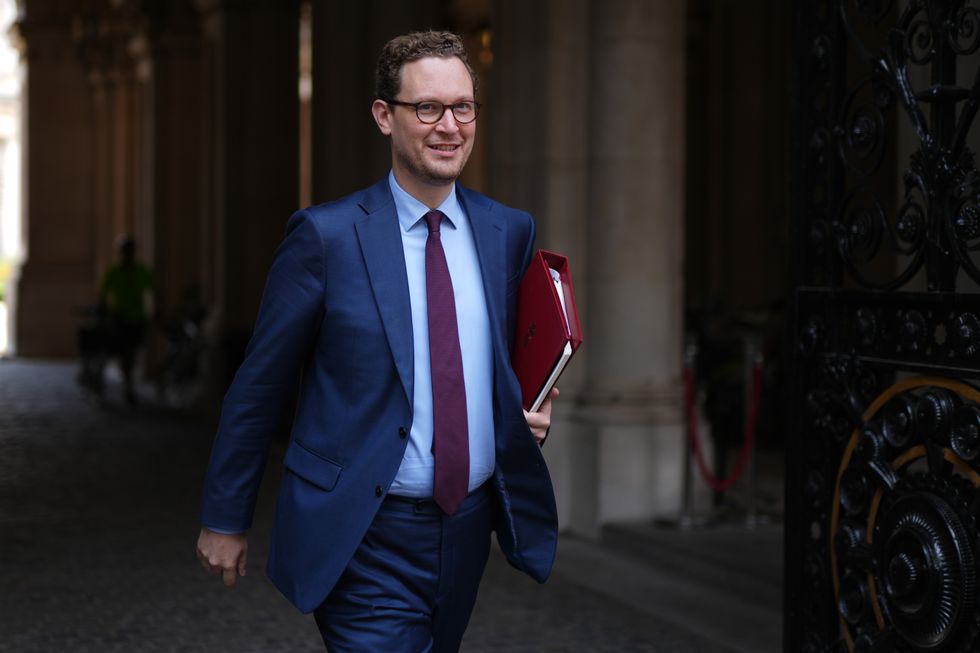GB News Reporter
Guest Reporter

Government borrowing unexpectedly jumped last month to a level not seen since the early 1960s presenting Chancellor Rachel Reeves with a fresh dilemma ahead of the October budget.
Borrowing rose to £13.7 billion last month marking the third-highest August on record, according to the latest figures from the Office for National Statistics.
This was largely driven by higher spending on public services due to increased running costs and pay increases.
This figure is £3.3 billion higher than last year and £2.5 billion higher than had been forecast by the Office for Budget Responsibility in March.
Public sector net borrowing excluding public sector banks was £13.7 billion in August 2024, £3.3 billion more than in August 2023 and the third highest August borrowing on record, behind 2020 and 2021.
Read morehttps://t.co/TZURmjBKXB pic.twitter.com/K8CN79gvPp
— Office for National Statistics (ONS) (@ONS) September 20, 2024
The Office for National Statistics’ chief economist Grant Fitzner said: “Borrowing was up by over £3 billion last month on 2023’s figure and was the third highest August borrowing on record.
“Central government tax receipts grew strongly, but this was outweighed by higher expenditure, largely driven by benefits uprating and higher spending on public services due to increased running costs and pay.”
The increase in borrowing means public sector debt hit 100 per cent of gross domestic product (GDP) at the end of August 2024.
Chief Secretary to the Treasury Darren Jones said: “When we came into office, we inherited an economy that wasn’t working for working people.
“Today’s data shows the highest August borrowing on record, outside the pandemic. Debt is 100 per cent of GDP, the highest level since the 1960s.
“Because of the £22 billion black hole in our public finances we have inherited this year alone, we are taking the tough decisions now to fix the foundations of our economy, so we can rebuild Britain and make every part of the country better off.”
It comes after Reeves accused the previous Government of leaving a “£22 billion black hole” in public finances and warned that there would need to be “tough decisions” ahead of the upcoming budget next month.
Borrowing for the financial year so far to August 2024 was £64.1 billion, £0.3 billion more compared to the same period last year.

LATEST FROM MEMBERSHIP:
- 'Reform's conference may become the Farage show but the party needs to show it's bigger than one big beast'
- 'Chris McCausland can be BBC Strictly's saviour - but bosses mustn't make a familiar mistake'
- Get FIVE free entries to the Great British Giveaway when you become a GBN member in September
Isaac Delestre, research economist at the Institute for Fiscal Studies, said: “With large swathes of the tax system seemingly off-limits due to Labour’s manifesto commitments, the Chancellor is going into this year’s Budget with one hand tied behind her back.
“There will be a temptation to increase revenues in ways that would be economically damaging.
“Stamp duty deserves a special mention as a tax that should not be increased.
“But Rachel Reeves also has the power to fix some of the more glaring deficiencies of our tax system: taxes on pensions, capital gains and inheritances (to name just three) are all crying out for reform.
“If she takes the opportunity to improve taxes, as well as increase them, she could be rewarded not only with more revenue but also with a tax system that is fairer and less of an impediment to growth.”
Find Out More...




